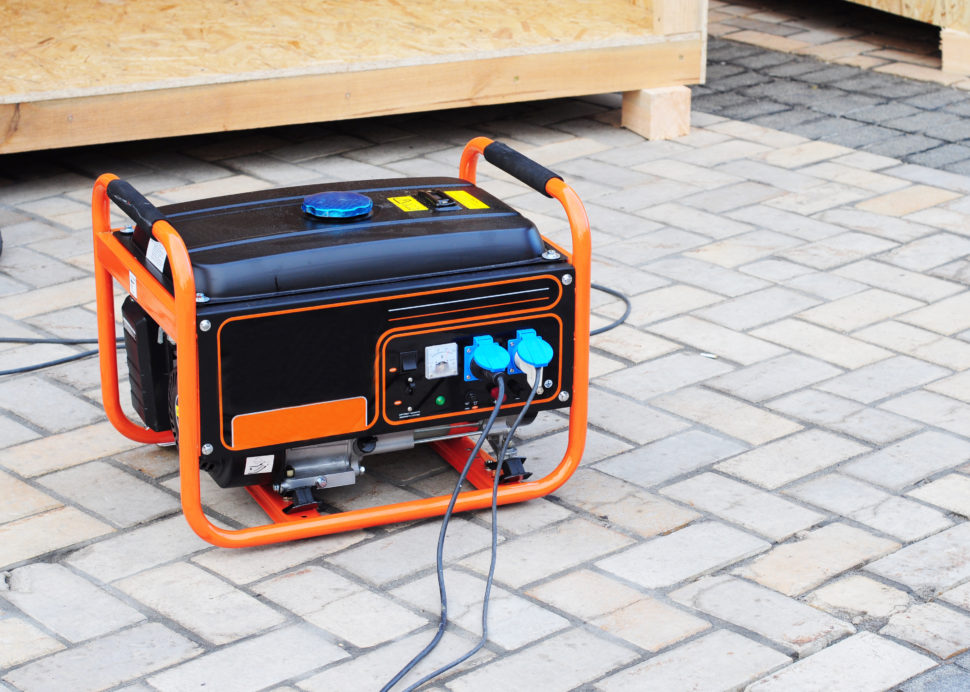Standby Generators: Should You Buy One?
Filed under: Electrical
Comments: None

Power outages are unavoidable and can happen unexpectedly. From hurricanes and sudden electrical storms to transformer interruptions and power equipment failures, you need to be prepared for a blackout. Blackouts and power outages have been steadily increasing in frequency and duration across the country. Violent storms and the nation’s aging and overloaded electrical grid are both to blame, making a standby generator almost a necessity in most homes. A standby generator is a common piece of equipment that powers your home during a blackout so you can stay comfortable and safe in the event of an outage.
If your area is prone to power outages or you just want to be better prepared, whether you should buy a generator or not isn’t an easy decision. If you’re going back and forth wondering, “Should I get a standby generator?” the electrical contractors at NCE are sharing standby generator advantages and why it could be a practical investment.
What Is a Standby Generator?
A standby generator or whole-house generator is a backup for your house or facility that runs on natural gas or propane. They are hooked up to an existing gas line and transfer switch. During storms or when the grid power fails, a standby generator will automatically register the outage and kick on, so you don’t experience an interruption in power. Unlike a portable generator, a standby generator can power an entire house or business easily.
What makes a standby generator a better option for your home or business is that once fully integrated into your space by a professional, it will be up and running with no additional set up, waiting for a power emergency. Gas or diesel-powered generators will need extra fuel and to be manually set up, making a standby generator the preferred and safer choice.
Benefits of Owning a Standby Generator
Owning a standby generator has many advantages, especially if you live in the US. In 2017, there were over 3,500 blackouts across the United States, lasting 49 minutes on average. This affected almost 40 million people and this number is expected to continue to rise. Not only can you be left in the dark for hours or even days, but you also run the risk of food spoiling, essential medical equipment not functioning, and interruptions in workflow.
While the upfront cost may seem large (you could pay anywhere from $7,000 to $12,000 for a residential property and even more for a commercial space), a standby generator can end up paying for itself in the end. If you’re still wondering, “Should I get a standby generator?” were sharing a couple more important benefits to consider:
- Prevent frozen pipes – if you lose power during the bitterly cold winter months, you run the risk of freezing pipes. When your home or commercial property’s pipes freeze, this can lead to a burst pipe, which can cause flooding and water damage to your space.
- Enjoy peace of mind – Enjoy peace of mind during any season with a standby generator. In the hot summer months, prevent food spoilage and keep your family or employees cool and comfortable in the heat. No one wants to be without heat or hot water during the winter. Having a standby generator can prevent freezing temperatures.
- Continue working from home – with more and more people working remotely, a standby generator can keep you connected so you never miss an important email or call.
- Increase property value – according to Remodeling Magazine’s Cost Vs. Value Report, having a standby generator (around $12,000) installed can increase your resale value by over $7,000.
A standby generator can ease the worry of a sudden power outage at your home or business. Make the smart decision today and invest in a standby generator for your residential or commercial property. At NCE, our team can help with services, including acceptance testing and commissioning on new and existing substations. Contact us today to learn more about our services.
